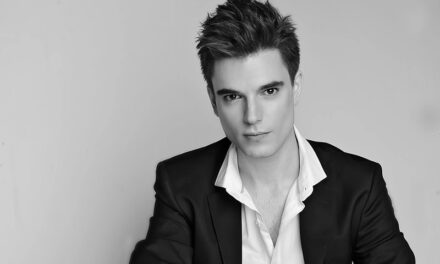Late on the afternoon of September 15, a large crowd consisting of cellists and chamber music fans assembled in the Nelson Music Room on Duke’s East Campus for a recital by cellist Fred Raimi, of the Ciompi Quartet, and other fine musicians. It might have been mistaken for a festival of pianists, for there were three of them on hand, one of whom is also a composer, but in fact the presence of Duke’s Randall Love and UNC’s Thomas Warburton resulted from a recent accident involving the originally-scheduled artist, Jane Hawkins. (Raimi explained that she is doing fine although she has not yet resumed playing.) As it happened, the pianistic allocations were aptly handled: Love supported Raimi and violinist Eric Pritchard in Beethoven’s B-Flat Trio, Op. 11, one of the master’s more over-played scores (it was given the night before, on the Chamber Arts Society’s program) and, at the end of the concert, in Schumann’s well-known Fünf Stücke, while in between Mark Kuss accompanied his own suite of 10 American Folksongs (of which more anon) and Warburton, whose participation underscored ongoing links between the Music Departments of UNC-CH and the Great Gothic Rockpile, did the honors in Max Raimi’s “Ein Mol: Variations on a Yiddish Folk Song.” The program was unified by its whimsical but apparently accurate title, which was “Folk Songs More or Less,” and the hand of the wry Raimi was evident throughout – in his playing, of course, but also in his spoken commentary (there were no program notes) and in the line, “A much needed interval,” which, in the printed program, followed Kuss’ little set of…, well…, what were they?
For openers, however, the Beethoven was charming, even though Raimi had discovered that there’s no folk tune in it – the finale is based on what sounds like one but is actually from a terzetto by one Joseph Weigl, lifted from L’Amor marinaro . Raimi explained that the gist of the tune is “Before I go to work, I must have something to eat”; with our appetites thus whetted, we were somewhat dismayed that there was no post-concert reception….
Kuss’ charming and delightful piece is based not on folksongs per se but advertising tunes, lifted from TV commercials for Winston cigarettes, Intel’s Pentium III, State Farm Insurance, and so on. Those who know Kuss’ work from his years at Duke are aware that there are few more innovative creators walking the boards – although we’ll grant that some mainline music lovers might prefer to have him be walking the plank…. That he is well-versed in his art is constantly apparent. That the suite would have fooled someone in the 17th or 18th century (or some fortunate soul who had never heard of Bumble Bee Tuna or Roto Rooter or Nestlés or Old Spice or Oscar Mayer or Delta Airlines) was equally obvious. It was the tunes that made this unbearably funny or – more properly – the tunes and Kuss’ inside the piano antics and Raimi’s deadpan concentration. The piece seemed somewhat disproportionately cast, however: the opening section, a theme with four variations, looms larger than the nine other components. Perhaps this stemmed from Kuss having lived too long in the Bull City, home of Bull Durham. We’re not suggesting that he’s on the take from Big Tobacco, however – and we note with pleasure the complete absence of representation from the US hamburger industry. Music lovers who hunger for more by Kuss should investigate a fine Gasparo CD (GSCD-337), recorded in Baldwin Auditorium and issued several years ago. It contains a work for violin and piano, a piano trio, and an R-rated piece for string quartet and tape, and the artists involved are Pritchard, Raimi, pianists Irene Sendak and Jane Hawkins, and the Ciompi Quartet.
In comparison, Max Raimi’s set of variations was somewhat better suited for a Sunday-afternoon longhair program, but a spy in the audience whispered that the original tune was hardly recognizable in the jazzed-up setting. The music of this composer, who happens to be the solo cellist’s brother, has been heard here fairly often and is always welcome. Warburton deserves a medal for mastering the score in what must have been not a whole lot of time.
The wonderful Schumann pieces “in Folk Style” received radiant readings. Love was outstanding in his accompanying role, as indeed were all the other keyboardists. At no time did the piano dominate the proceedings, so Raimi’s rich cello (which actually covered an incredibly wide sonic spectrum, thanks in large measure to Kuss’ and Max R.’s demands) was always audible for better or (in the Roto Rooter section, perhaps) for worse. Ensemble was for the most part exemplary, and there were only one or two transitory moments when we winced for reasons other than the scores themselves….











